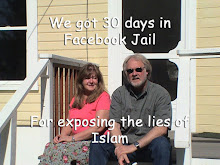Codex Textus Receptus or Vaticanus and Sinaiticus
by Dale Brown
by Dale Brown
Mormons are famous for refuting any biblical doctrine that does not harmonize with their modern revelation with the statement, "We believe the Bible in as far as it is translated correctly." Using a similar argument many Christians as well as other cults dismiss certain biblical teachings because of the fact that we have manuscripts available today that predate those that were the source text of the King James and other common translations. This makes it difficult for us who have always been taught that the Bible we grew up with was totally reliable. Those who argue that the older Codex Vaticanus and Sinaiticus text are more correct fail to admit that both of those manuscripts contain much apocryphal material that is clearly as questionable as the verses in question in the King James (and the Textus Receptus manuscript that it is based on).
Martin Luther’s German translation used the Textus Receptus Greek text (translated by Erasmus, a catholic priest and scholar) as well, so this is not just an English translation problem. I have a number of Spanish bibles which include many of the same disputed verses that appear in the KJV.
One example of this problem is found in the last chapter of the gospel of Mark. Modern translations have a note regarding verses 16:9-20 pointing out that in many earliest manuscripts these are not included. It is true that if these verses are not balanced by the weight of the rest of scripture some obvious problems can arise. Those who try to support the idea that baptism is essential for salvation are quick to point to verse 16, "The one who believes and is baptized will be saved…". Others who may have an anti-Pentecostal or dispensational bias claiming the supernatural gifts of the Holy Spirit stopped with the apostles are quick to point to fantastic practices such as snake handling etc. as "proof" that verse 18 is not reliable. For those who drink deadly poison and die, it will be pointed out that this is not good doctrine. So what do we do with these difficult verses which are found in manuscripts with a pre-Vulgate Latin style such as Codex Gigas, and most commonly used translations in Swahili?
The question we must ask ourselves is this, what does the rest of the bible say about these verses? Is there any record of people being healed through laying on of hands? Is there any record of anyone speaking in unknown tongues? Is there any record of anyone casting out demons? The answer is a resounding, yes. However, is there any record of anyone picking up a serpent? There is only one case, and that was an experience Apostle Paul had while collecting firewood (Acts 28:3). He was not, however, looking for a serpent to demonstrate his faith. In the case of drinking deadly poison there is no biblical record. If these verses are to be taken literally then we have to question how they are to be applied. One of these disputed verses (16:19) is found in the writing of Irenaeus (Against Heresies), a disciple of Polycarp, so it appears that they were available in the second century.
At one point Jesus was lead to the pinnacle of the temple and the devil said, "If you are the Son of God throw yourself down; for it is written…" and he quotes from an Old Testament Psalm. Jesus counter challenges with, "it is written, ‘You shall not put the Lord your God to the test’" (Matt. 4:7). He balanced the tempter’s verse with a scriptural reply that brought context to the true meaning.
The safety measure to use in such translation debates is not to throw away anything in which there is doubt, but apply the principle test in which "Every fact is to be confirmed by the mouth of two or three witnesses"(2 Cor. 13:1). That is, do not build a doctrine around a verse which only appears once and is not confirmed by other biblical verses or principles. Though there may be some merit to the manuscript arguments it is not faith promoting to simply debunk a translation when few of us have access to the manuscript evidence. Even if we did how many would be qualified to make such a linguistic decision. If a few verses can be refuted so simply then what prevents the Bible as a whole to be refuted? One needs only to find an old manuscript that agrees with our bias. This is what gnostics and other critics of the Biblical text do. They point to the ancient text like the Nag Hammadi Papyri to challenge the modern Bible authority. In most cases these questionable verses, even if they were to be removed from the text as a whole it would not change the over all message of the gospel.



















